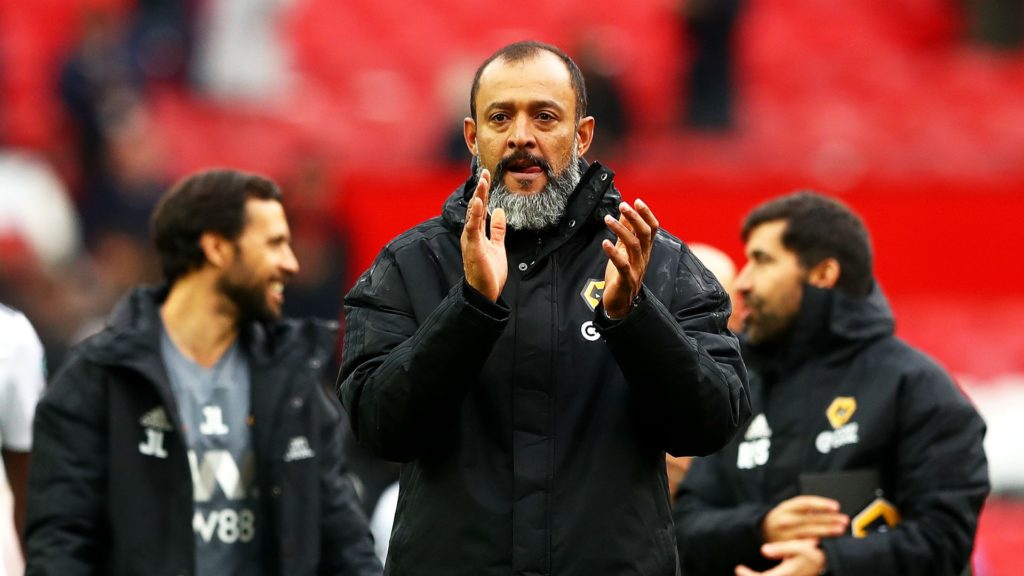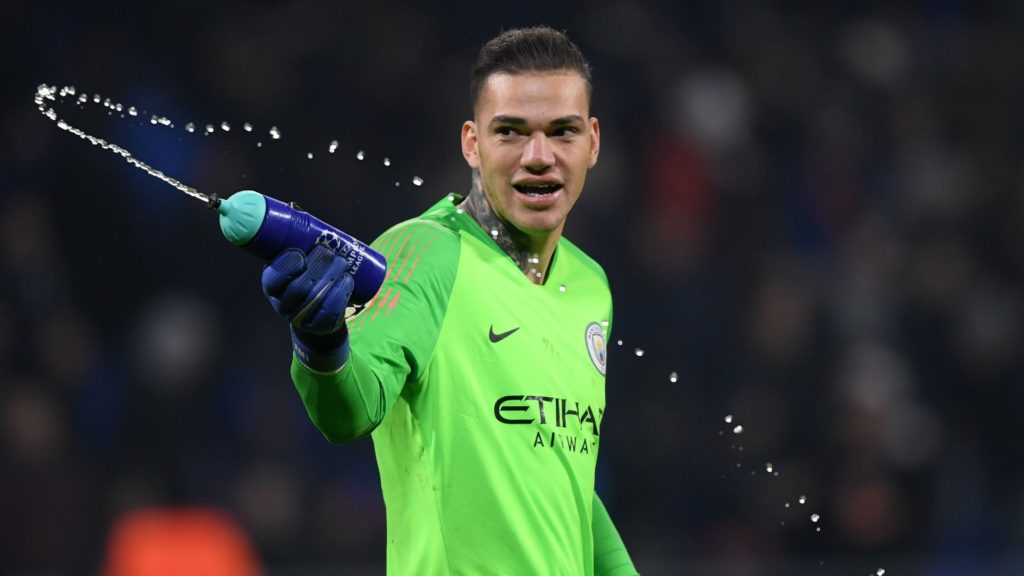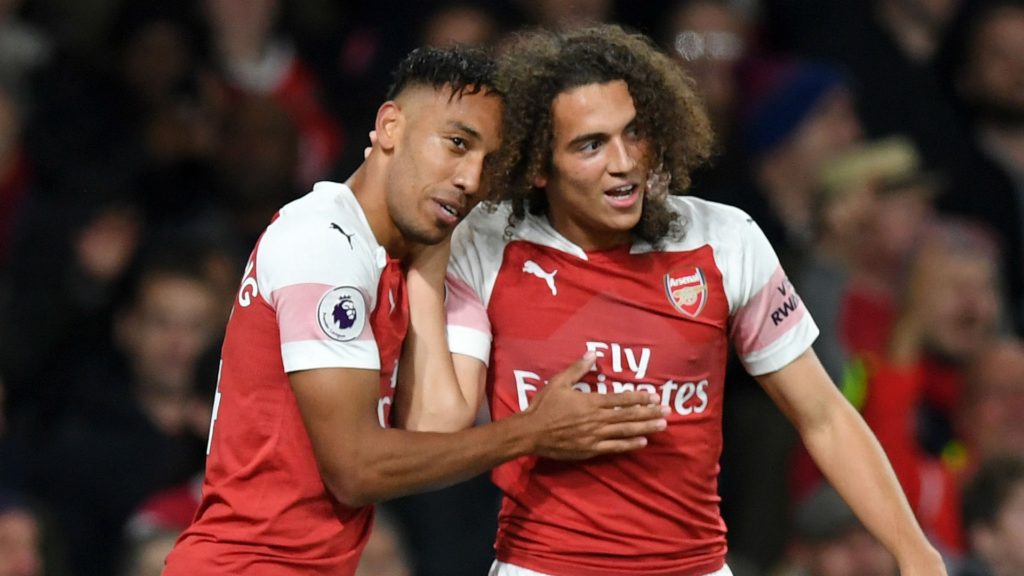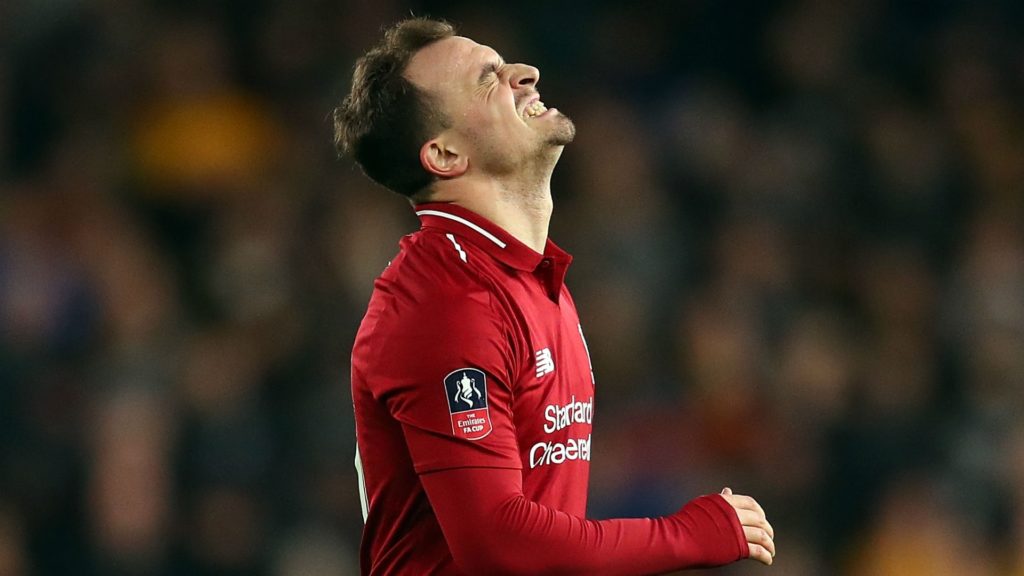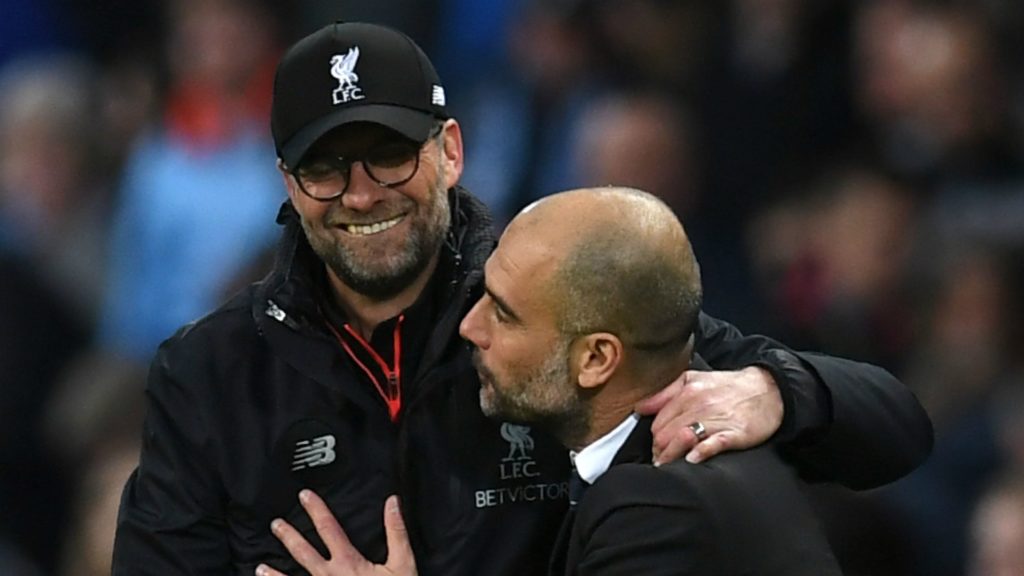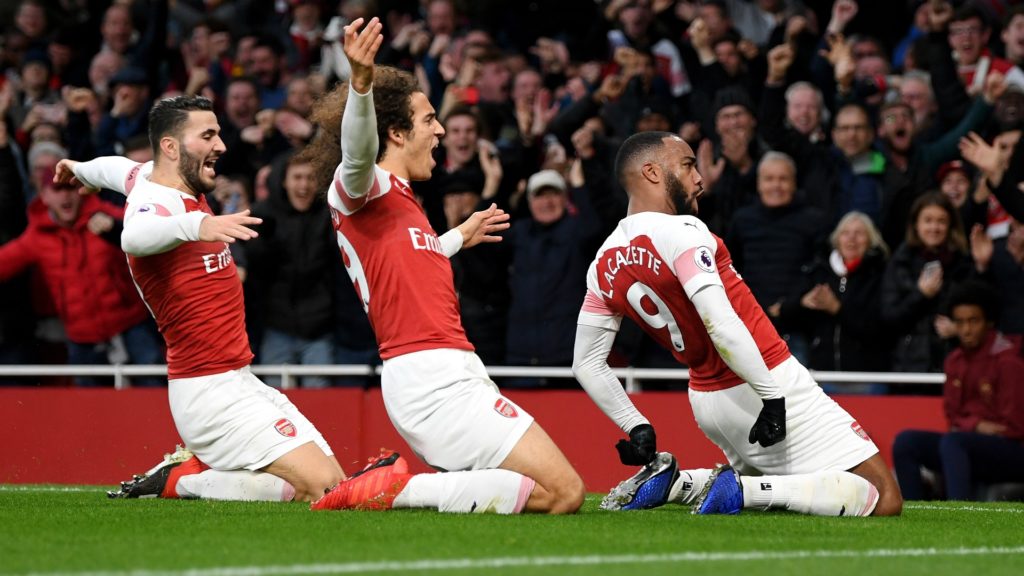Wolverhampton Wanderers may just be one of the biggest Premier League success stories in decades. Coming off the strength of their Championship promotion, the West Midlands club enjoyed two terrific seasons in the top tier. Here’s how manager Nuno Espírito Santo developed Wolves’ tactical approach.
Nuno Espírito Santo’s style
Wolverhampton Wanderers’ manager, Nuno Espírito, is a young tactician that has already achieved plenty. Wolves is only the fourth club he has ever coached. Previously he had been in charge of Rio Ave, Valencia, and FC Porto.
His football philosophy is now well-established. The Portuguese favors positional play. Wolverhampton Wanderers FC players are required to move on the field so as to create triangle shapes. This positional play is used both in attack and defense.
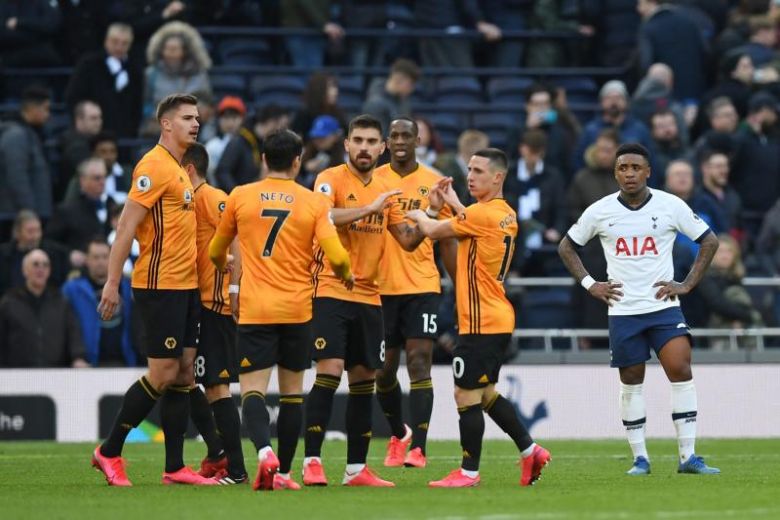
Wolverhampton Wanderers’ tactics and formation
News that Wolverhampton Wanderers had promoted back to the first tier of English football was received apathetically by the majority of football fans outside of the Midlands. However, with an intelligent tactical approach, and a transfer budget that allowed the club to get the players they needed, Wolves were ready to turn heads.
Wolverhampton FC usually plays in a 3-4-3 formation that Nuno adopted specifically because of the needs of his team. The team shape, however, is fluid. A 3-5-2 shape is used against less resourceful opposition. And, against better opposition, Wolves is known to switch to a four defender line, with the dependable Ruben Neves dropping down to stop attacks.
Wing-backs are essential to Wolves’ strategy. Their advancement up the pitch is balanced by the central midfielders’ switch to a more defensive role. At times, even the striker, usually Raul Jimenez, will take a pressing attacker role.
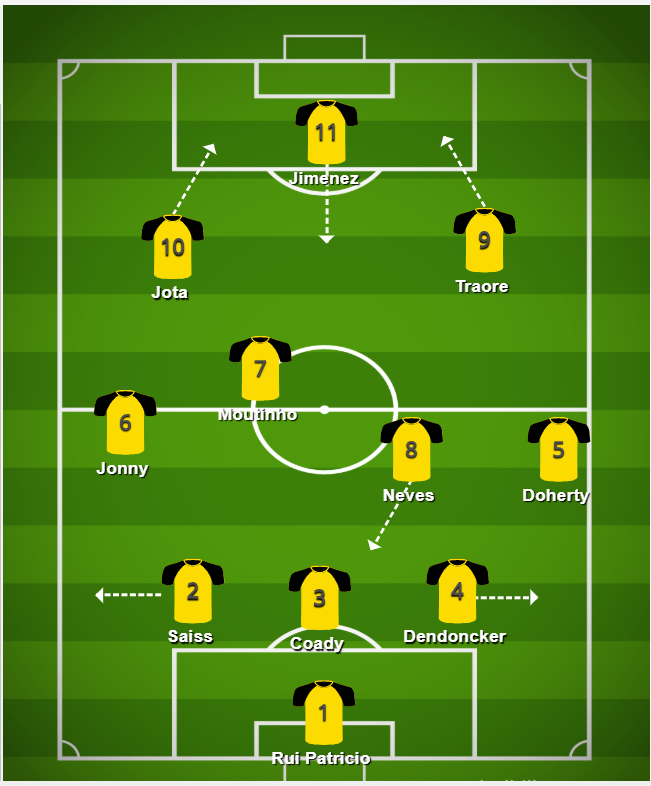
Raul Jimenez, the central forward, makes use of his strength in order to act a pivot for the wingers that become inside forwards when the team is counter-attacking. Diogo Jota and Adama Traore, the wingers, are Wolves’ biggest goal threats. Both are tough, pacey players that possess natural shooting ability.
Wolves in counter-attack
Wolves are most threatening offensively when employing a quick counter-attacking style. While the 3-5-2 formation is, generally, used when the team is patiently building its attacks, the 3-4-3 will be employed for quick counterattacks that attempt to make the best of their wide players’ speed and technique. The wing-backs and wingers will overload the wide areas giving the player who is in possession of the opportunity to quickly move the ball into an attacking position.
Furthermore, on the counter, Wolves’ attacking players will position in order to move their defensive markers out of their regular position. For example, it is common for Jota and Traore to drop lower, taken their marker with them, and attempt a side-pass to Doherty or Jonny. They, in turn, will whip crosses towards the target man.
Wolverhampton’s defense
In 3-5-2 formation, Wolves will attack through the center of the pitch. Two attackers, usually Jimenez and Jota, will run alongside the other, creating the opportunity for a decisive pass. On more rare occasions, Moutinho will also become involved in the counter-attack, with Nuno’s players looking to break down the opposition’s defense. More than a third of Wolves’ counter-attacks ends with a shot on goal.
The same formation is favored for defensive work, as well. The first line of defense in Nuno’s tactics is always the midfield. Players are encouraged to keep a high position and play with small width between them. While midfielders attempt to stop opponents from playing through the middle of the pitch, the forwards will also apply pressure to ball-playing defenders in a bid to build a quick counterattack.
Wolves’ plan is to force their opponents to take the ball wide. At this stage, with the wing-backs dropping down to offer support, Wolverhampton will move into a three-player marking ploy. This, often, forces teams into making mistakes or allows time for Dendoncker to challenge for the ball.
By the Premier League season’s stand-by, Wolves had the seventh-best defensive record in the competition. The efficient closing of space through the middle of pitch and three-man-press, largely account for the team’s success in this area.
Wolves against Premier League teams
Wolverhampton Wanderers have been a surprising addition to the Premier League. The team even earned playing time in Europe’s international competition, Europa League. This season they are on target to the same.

Much of their success can be attributed to the fact that they are a difficult team to win against, even if their opposition is Manchester United or Liverpool. Against top six teams, Wolves has a very even score. Against lower-ranked clubs, they rarely waste points.
Wolverhampton Wanderers has proven itself to be one of the more exciting teams in recent Premier League history. Their intelligent tactics, their adaptability and their strong roster of players make it one of the teams to watch for the future.
